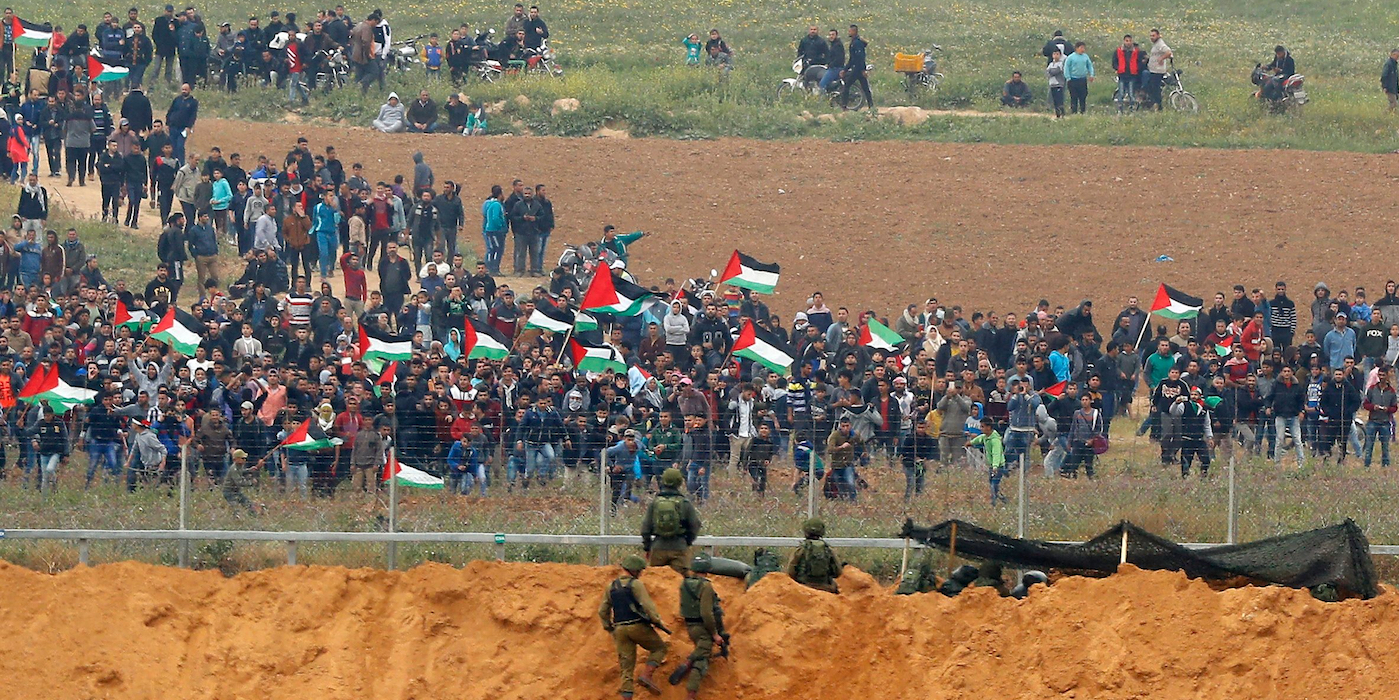#KingdomOverEverything
On Friday of this past week, violence broke out along the Gaza border and fifteen people died. Around the world people reacted in anger and then lined up behind their side to advocate. I confess that I cannot read a headline involving conflict in Gaza without feeling an emotional response. That emotional response is often the product of a conclusion made independent of the facts. What do you think when you hear the words violence and Gaza?
Three days later, the New York Times headline read ‘After Gaza Clash, Israel and Palestine fight with videos and words.’ Reading that headline this morning, I was reminded of Malcom Muggeridge’s assessment of the modern world - there is no new news, only old news happening to new people. Tragically, for fifteen new people, Friday’s news was the final sentence in the story of their lives.
With the Israeli-Palestinian Conflict, it’s easy to assign blame and it’s easy to provide justifications. It’s incredibly difficult, however, for members of either side to humanize the other. This is because the fight between Israel and Palestine has been fought with ‘videos and words’ long before it was fought with suicide vests or M16s. We should be distrustful of narratives that are simple; simplicity is the domain of propaganda, while the complexity of nuance is the domain of truth. When you hear the words violence and Gaza, are your feelings simple or complex?
As a Christian, every Easter (as I did today) I find myself captivated by dialogue between Jesus and Pilate. “Are you the King of the Jews?” Pilate must have asked this question with sarcasm, but Jesus responded disarmingly – “My Kingdom is not of this Earth, for if it were my servants would fight to prevent my arrest.” I am perplexed by this answer because I also remember that Jesus commanded us to ‘Seek first the Kingdom of God’ earlier in his ministry. The Kingdom of God doesn’t need to fight because it doesn’t seek to create a political reality. The Kingdom of God isn’t worried about who is elected. Instead, the Kingdom of God seeks a voluntary path of love so great that it compels us to rearrange our lives beneath that of the Kingdom. The Kingdom of God is literally over everything.
With the events of the past three days, I cannot help but ask myself and my fellow Christians this distinctly Easter question: what does the Kingdom of God ask of me in the Israeli-Palestinian Conflict? Repentance. I confess that in my zeal for justice and fairness, I have picked sides in a conflict. I confess that I have done so because I want simple answers and because it’s simply too hard to humanize and love both Israelis and Palestinians. The Kingdom of God disarms my political fears and compels me only to be a voice of love and reconciliation.
For my Christian readers, I must ask again: what does the Kingdom of God ask of you this Easter season?
Alex Shegda is an Atlanta native that enjoys traveling, learning and college football (Go Dawgs!). Alex has degrees in history and business and spent a decade working in political campaigns. Alex and his wife Jan live in Los Angeles, CA, where Alex works as a technology strategy consultant.

